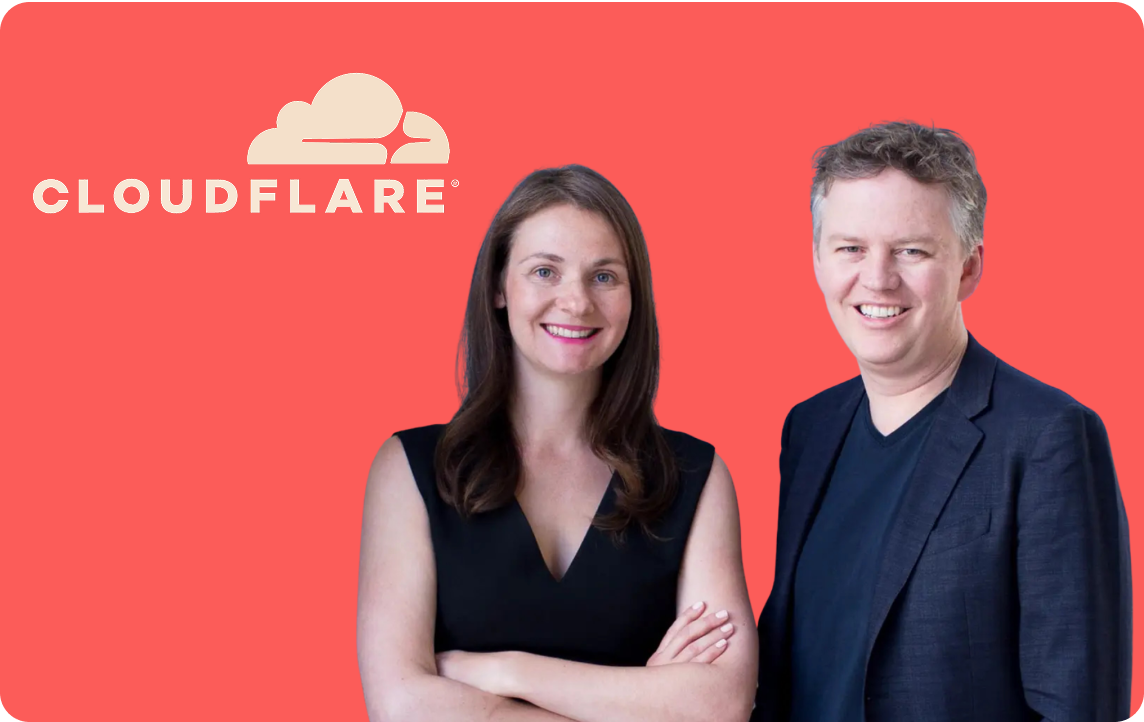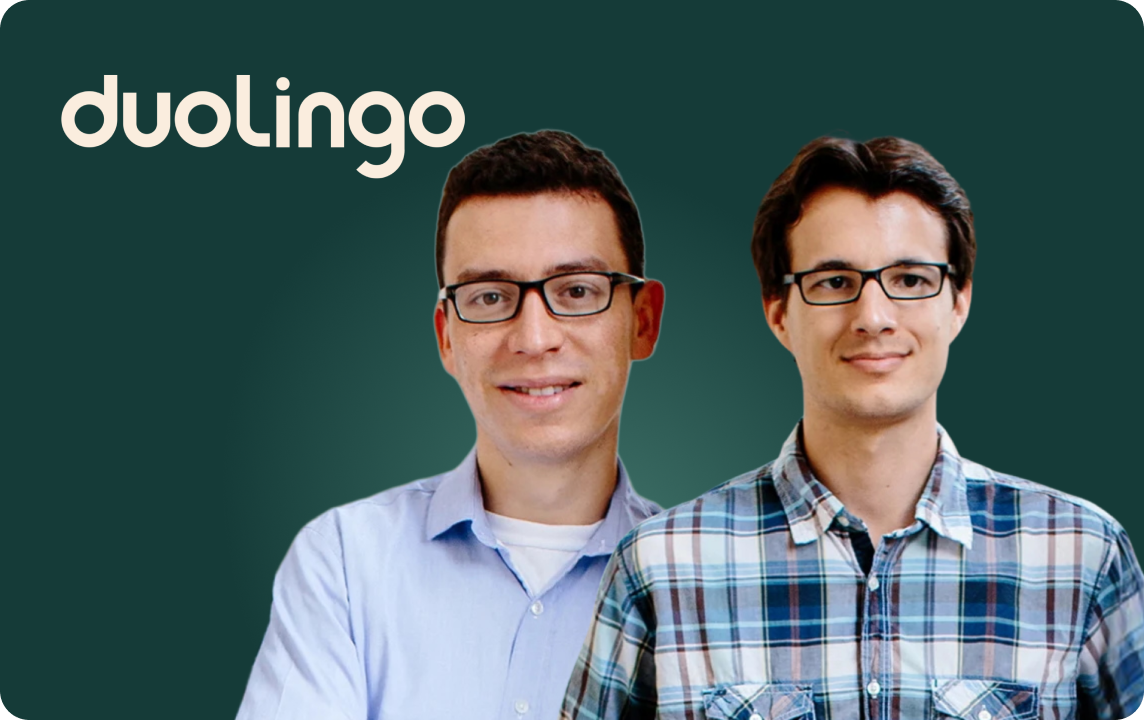David Maher, investment analyst at Square Peg’s Global Tech Fund, explores our investment thesis for Wise (LSE: WISE) - a founder-led business with a bold vision of ‘money without borders’.
Wise (LSE: WISE), formerly known as Transferwise, was founded in 2010 by Taavet Hinrikus and Kristo Käärmann, its current CEO. Some of you reading may be personally familiar with their affordable cross-border transfer product or their popular, bright green international debit cards. For Square Peg, it was our venture investing - including our diligence of fintech players like Airwallex and Xflow - that became the starting point for our interest in this business. For those completely new to Wise and its story - a brief introduction is needed. Let’s wind the clock back to the company’s founding.
Sitting in London in 2010, Wise’s co-founders felt the pain of cross-border transfers personally and acutely

Taavet was earning a salary in Euros but was paying his London expenses in Pounds. Kristo was being paid in Pounds, but had an overseas mortgage denominated in Euros. Both were paying high foreign exchange fees to their banks, multiple times per month - whether presented as an admin fee, a percentage take rate, a hidden markup in the exchange rate - or all three.
Taavet and Kristo put their heads together. They created a local ‘liquidity pool’ with their respective Euros and Pounds, making equivalent domestic transfers to each other in the currency they wanted, based on the official exchange rate, near-instantly and without fees. More and more people in similiar positions, sick of fees and delays, wanted to join the pool. The scale of the cross-border problem they could solve was clear. Kristo and Taavet founded Wise on the premise of ‘Mission Zero’ (bringing transfer fees to nil over time), supported by a product-led, customer-centric organisation.

Today, Wise’s core money transfer product is known for its low, transparent pricing and speed.
‘All-in’ rates to transfer money across borders are transparently shown to the customer and can be as much as 10 times cheaper, and multiple days up to a week faster compared to cross-border transfer products with legacy banks or remittance players. When a customer chooses to transfer with Wise, they can also see the progress of their money in near real-time. Broadening from its core transfer product, Wise today also offers debit cards, multi-currency accounts and an embedded finance platform for businesses.
Our Investment Thesis
Wise has many of the characteristics that Square Peg’s Global Tech Fund looks for in the businesses we invest in. It is founder-led, a market leader, ~3 years out from IPO with a clear path to become >5x bigger over the next 5-7 years, in our core investment thematic of fintech disruption.
Our investment thesis is that Wise has a strong competitive position that will enable it to increase share in the large and growing cross-border payments market, and attach new products over time.

The first component of our thesis is that Wise has a strong competitive position in its market from which it can grow share
While the ‘liquidity pools’ tactic that Wise’s story began with can be incrementally improved with scale, complex treasury models and proprietary volume data - the real moat Wise developed over time is its globally broad and deep portfolio of partnerships, licences and integrations. This portfolio comprises the following:
- Local bank partnerships, where Wise’s 90+ global bank partners enable money ‘sending’ to over 160 countries;
- Regulatory licences, where Wise’s 65+ licences enable money ‘receipt’ across 41 countries; and,
- Local payment system integrations, where Wise’s integrations enables enable real time payments in 6 countries
Together, these let Wise offer the broadest range of highly competitive FX rates. But how strong is this portfolio as a moat, really? At first blush, obtaining licences or partnerships might appear easily achievable for competitors.
A key driver of our conviction is the front-line exposure to change that we have through Square Peg’s venture investing. Our venture team evaluates over 3,000 businesses each year, allowing us to compound knowledge across stages and geographies, giving us much greater depth in our focus themes software, AI - and, of course, fintech. The source of our conviction in the Wise thesis comes from our deep venture investing experience in the space, including financial technology portfolio companies like Airwallex and XFlow.
To begin with a quick introduction for those less familiar with Airwallex’s story - they are a global payments platform co-founded in 2015 by Jack Zhang, Lucy Liu, Xijing Dai, Max Li and Ki-Lok Wong. Square Peg first invested in the company’s 2017 Series A+ round and we have continued to invest in the company multiple times since. Airwallex focuses on SMB through Enterprise customers (as opposed to Wise’s Consumer through SMB focus) and offers treasury, global payments and card issuing products, and an embedded financial services platform.
In the case of our conviction in Wise’s moat, insights were fed into our diligence process from years of experience backing Airwallex as it developed its own analogous moat, helping us to develop a clearer picture of how important partnerships, licences and integrations are and how they vary by region. Our research on and relationships with Airwallex helped us understand the multi-year cycle times to close national license agreements and local banking partnerships. For example many countries require ‘boots on the ground’ for a significant time periods or may have unofficial criteria that they expect applicants to satisfy. We also observed the impact of the ‘reputational flywheel’ - or how the first set of licenses can be nearly impossible to obtain, but the 61st is much easier than the 60th with an established reputation and playbook. In this way we were able to better appreciate the gap both Wise and Airwallex have developed to competition through this infrastructure, especially in their core markets.

The second component of our thesis is that Wise is activating multiple levers of growth, that leverage its core FX capabilities and closeness to the customer.
The two most important growth levers are:
- The Wise Platform - this platform allows Wise’s 85+ global platform partners to offer white-labelled Wise functionality (cross-border accounts, cards and transfer) to their own customers. These partners include enterprises such as Agoda and Interactive Brokers, legacy banks such as Shinhan Bank or Indus Bank, and fintechs such as Nubank. Nubank highlights the scale potential of this offering, with white-labelled Wise capabilities being offered to a portion of its 93 million user base
- The Wise Card, which continues to grow strongly (+49% yoy revenue growth in Q2FY25) and is increasing its penetration on top of Wise Accounts. In addition to FX, the Wise card captures card issuing economics. We believe this can continue to be one of the business’ strongest growth engines given the card’s clear ‘fit’ with the needs of traveller, expat and investor customer personas by delivering low fees for international use and ease of set-up.
A business that gets better as it gets bigger
As customers increasingly attach to multiple Wise products (e.g. a transfer-only customers adds a card), we see aggregate customer behaviour improving over time. Most notably, Wise’s multi-product customers have improved retention and frequency of product use, while expanding total volumes transferred or transacted on card with Wise over time. This is an indicator of a business generating a higher ‘quality’ or sustainability of growth, and harks to similar patterns we have seen in other GTF portfolio companies like Datadog or Monday.com as they transitioned from single- to multi-product and platform offerings.
Conclusion
Critical to any investment decision we make is building conviction in the company’s team, and this includes Wise’s CEO and co-founder Kristo Käärman.
Alongside instilling the organisation’s focus on ‘Mission Zero’, Kristo has embedded several traits in the organisation’s product and go-to-market DNA. This includes the importance of any new product or country launch being:
(1) Self-funding in terms of net margin (raising the bar on how technically competitive and tied to customer needs products must be); and
(2) Delivering a very high Net Promoter Score (or NPS), so that the only products Wise offers are ones that customers love
As Wise grows beyond its core transfer product, we believe the organisation’s DNA of being flexible, lean and product-first is scalable. We also believe this culture has been established with an orientation around customer needs and the consequent word-of-mouth growth that has proven Wise’s most consistent and efficient growth engine.
We look forward to supporting Wise on its growth journey and sharing more updates on the business in the future.
Want to learn more about Square Peg's Global Tech Fund or explore investing?
Read more about our strategy to back founder-led businesses in the public markets, as well as our investment philosophy. Click here to contact Square Peg Investor Relations.

.svg)


